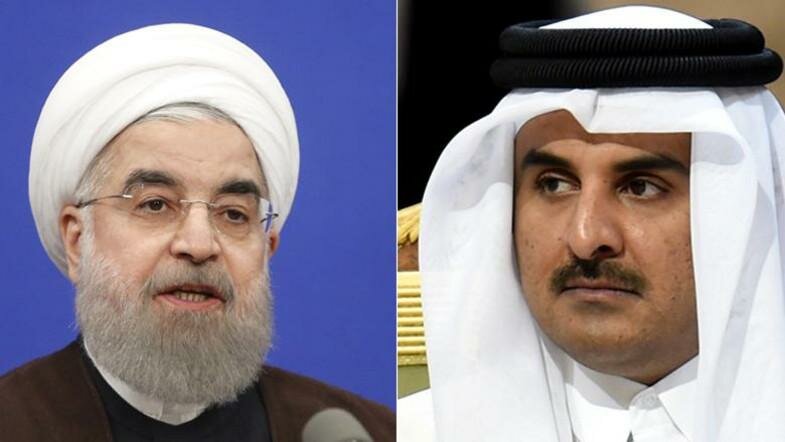Rouhani, Qatari emir discuss Israeli raid on Gaza over phone

TEHRAN – In a telephone call on Monday, President Hassan Rouhani and Qatari Emir Sheikh Tamim bin Hamad Al Thani discussed the recent developments in Palestine.
During the conversation, Rouhani stressed that Muslim countries must take all necessary steps to mount pressure on Israel and prevent further massacre of Palestinians, according to president.ir.
Recent attacks on the besieged Gaza Strip by the Israeli regime have left 27 Palestinians dead and scores wounded.
Tensions erupted on Friday following the killing of four Palestinians, two in an Israeli air raid on southern Gaza and two during the regime’s live fire at anti-occupation protesters near a fence separating the blockaded coastal enclave from the occupied territories.
The Israeli military claimed that its initial aerial assault had come in response to the wounding of two of its soldiers by Palestinian gunfire near the Gaza fence.
“It is necessary for the Islamic countries to prevent massacre of innocent Palestinians through their unity and mounting pressure on the Zionist regime,” Rouhani told the Qatari emir.
Rouhani also expressed concern about the current humanitarian situation in Gaza, especially in the fasting month of Ramadan.
Oil sanctions on Iran intended to create regional instability’
Elsewhere in his phone talks, Rouhani referred to re-imposition of unilateral sanctions by the United States on Iran, noting that the main goal of U.S. restrictions on Iran's oil exports were intended to create instability in the region.
Rouhani also expressed hope that political cooperation among friendly countries would help maintain stability and security in the sensitive Persian Gulf region.
U.S. President Donald Trump withdrew Washington in May 2018 from the landmark Iran nuclear agreement, reached between Iran and the P5+1 group of countries -- the U.S., Britain, France, Russia and China plus Germany -- in July 2015. He also decided to re-impose unilateral sanctions against Tehran.
The U.S. administration also said in a statement on April 22 that, in a bid to reduce Iran's oil exports to zero, buyers of Iranian oil must stop purchases by May 1 or face sanctions. The move ended six months of waivers, which allowed Iran’s eight biggest buyers -- Turkey, China, Greece, India, Italy, Japan, South Korea and Taiwan -- to continue importing limited volumes.
Noting that Iran welcomes any measures taken to restore calm and tranquility to the region, Rouhani expressed hope that regional problems would be solved through dialogue.
Tamim, for his part, said Doha had frequently told Washington and regional states that differences must be resolved through dialogue and that Qatar is opposed to any measure that would foment insecurity in the region.
He emphasized that Qatar will spare no effort to restore calm to Gaza while condemning measures taken against Palestinians by the Zionist regime.
SP/PA
